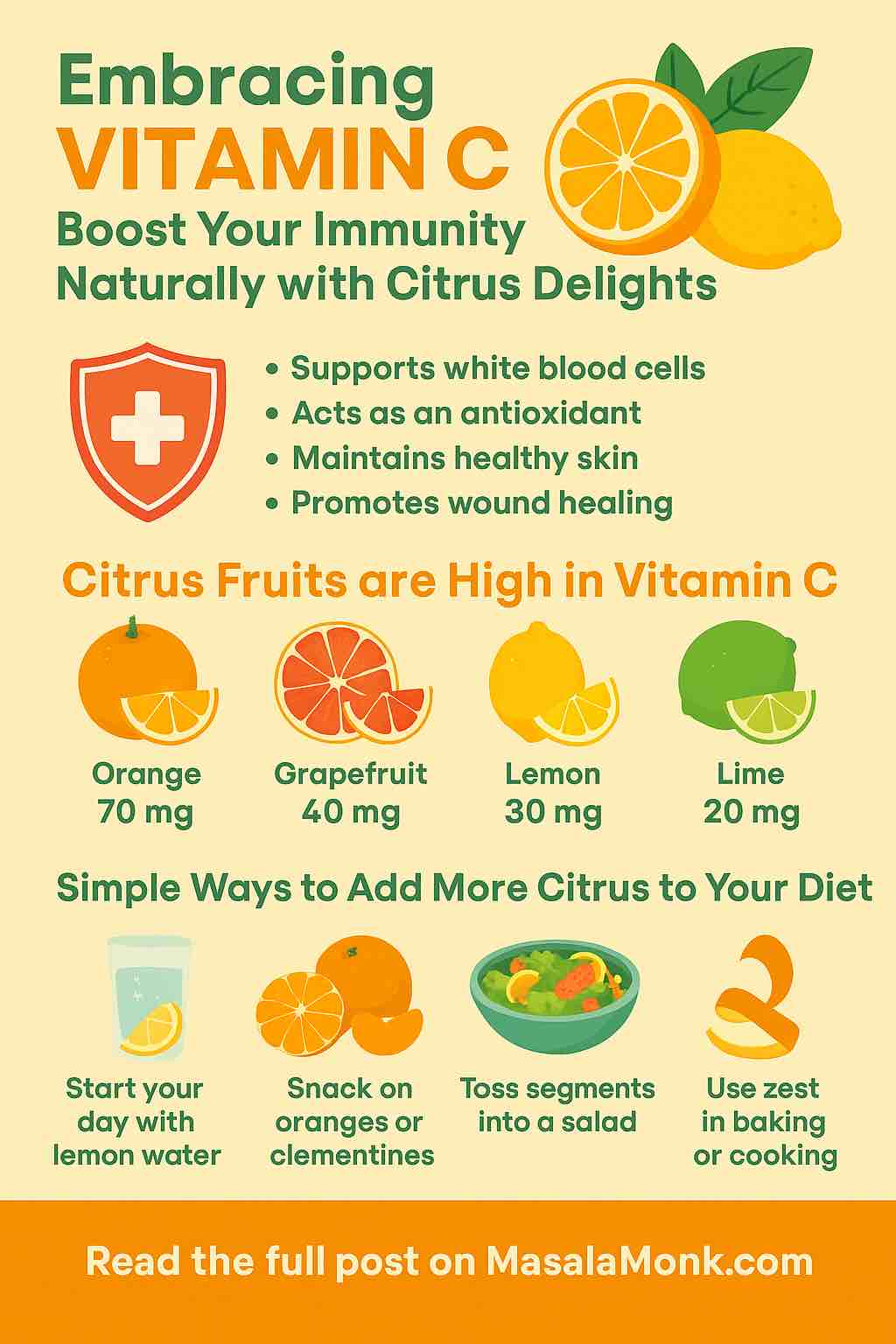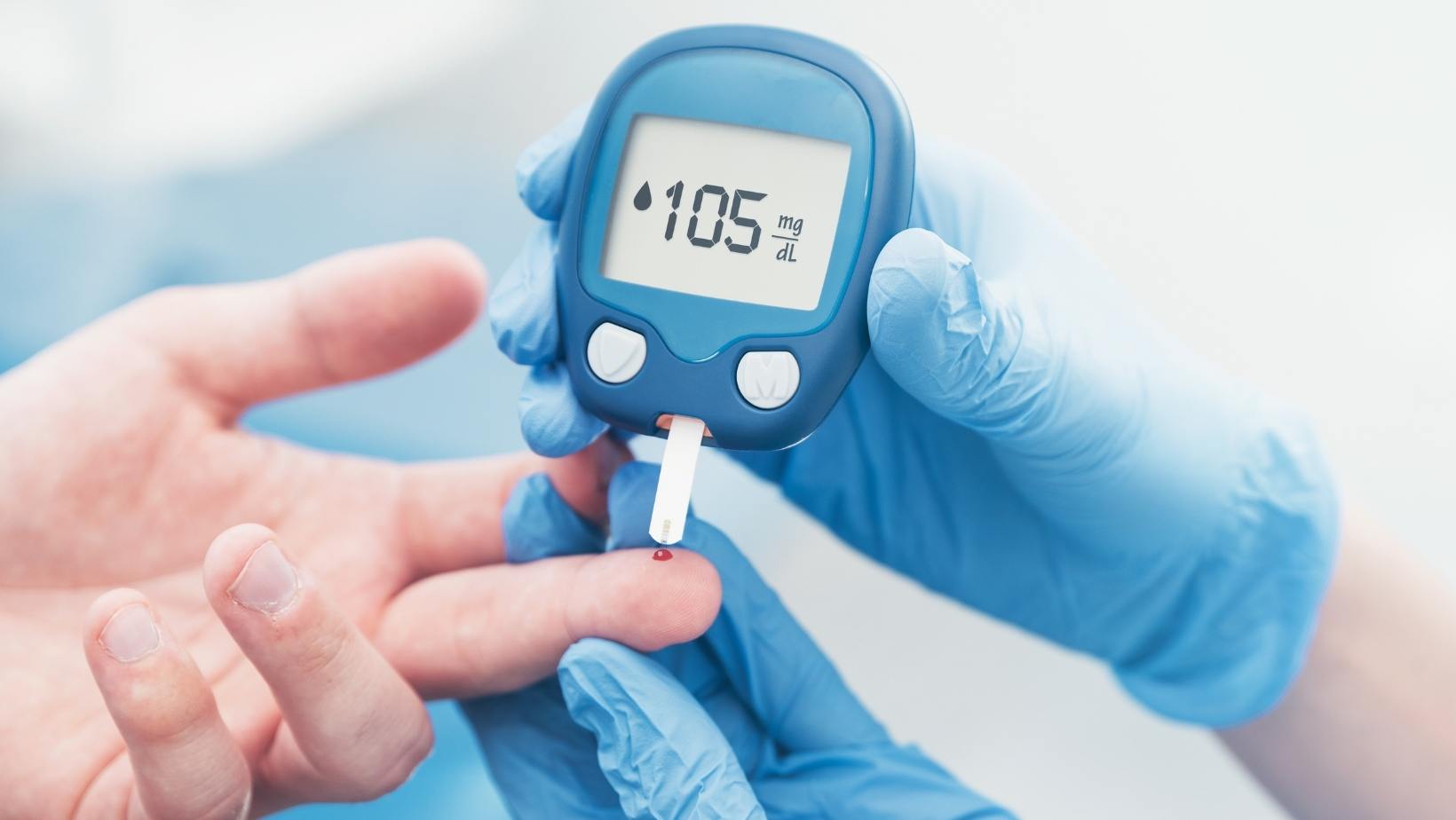
Walk into any health food store or browse wellness hashtags online, and you’ll find vitamin C in everything from fancy gummies to skin serums and smoothie boosters. But beyond the hype, vitamin C—especially from citrus fruits—remains a fundamental, science-backed ally for immunity, healing, and whole-body vitality.
But is it really as magical as some claim? And, in 2025, what does the latest research actually say about vitamin C and our immune defenses? Let’s peel back the layers and see how you can genuinely boost your health, naturally.
The Science: How Vitamin C Powers Your Immunity
Vitamin C, also known as ascorbic acid, is a water-soluble vitamin that our bodies can’t make or store. That means we need a regular supply from food—ideally, from whole, fresh sources.
What does it do?
- Supports White Blood Cells: Vitamin C helps your immune system by stimulating the production and function of white blood cells (like neutrophils and lymphocytes), which fight infections.
- Antioxidant Defender: It neutralizes harmful free radicals, reducing chronic inflammation and cellular stress that can weaken immunity.
- Barrier Builder: Helps maintain healthy skin and mucous membranes—your body’s physical barriers to germs.
- Wound Healing & Collagen: Promotes the creation of collagen, essential for healing and repair.
Latest Findings
- 2025: Vitamin C and Cancer Immunity: New animal research suggests vitamin C can trigger a process called “vitcylation,” which helps the immune system better recognize and attack cancer cells (Dana-Farber Cancer Institute, 2025). The catch? These effects happen at extremely high doses—far above normal dietary intake.
- IV Vitamin C in Cancer and Sepsis: Small studies in late 2024 showed that high-dose intravenous vitamin C, combined with chemotherapy, doubled survival in pancreatic cancer patients. For sepsis, results are promising but still under review.
- Respiratory Infections: Meta-analyses confirm that regular vitamin C intake can slightly reduce the duration and severity of the common cold, especially in children and under physical stress.
Citrus Fruits: Nature’s Vitamin C Superstars
When most people think of vitamin C, they think of oranges. But the citrus family—oranges, lemons, limes, grapefruits, clementines, mandarins—offers a spectrum of flavors, colors, and nutrients beyond just ascorbic acid.
Nutritional Snapshot
| Fruit | Vitamin C (mg/serving) | % Daily Value |
|---|---|---|
| Orange | 70 | 78% |
| Grapefruit | 40 | 44% |
| Lemon | 30 | 33% |
| Lime | 20 | 22% |
| Clementine | 35 | 39% |
But that’s not all:
- Flavonoids: Compounds like hesperidin, naringin, and quercetin are found abundantly in citrus. They add extra antioxidant, anti-inflammatory, and even anti-viral effects.
- Folate & Potassium: Citrus helps support heart and nerve function.
- Hydration: High water content supports cellular health and skin.
Citrus Delights in Practice: How to Get More, Easily
1. Start Your Day with Citrus
- Lemon Water: Squeeze half a lemon into a glass of warm water. It’s hydrating, refreshing, and an easy vitamin C boost.
- Orange or Grapefruit Halves: Eat as is or sprinkle with a touch of cinnamon.
2. Snack Smart
- Clementines & Mandarins: Easy to peel and perfect for on-the-go.
- Citrus Yogurt Bowls: Top plain yogurt with orange segments and a little zest.
3. Power Up Your Meals
- Salads: Add orange or grapefruit segments to leafy greens with a light vinaigrette.
- Citrus Salsa: Dice oranges or grapefruits with red onion, cilantro, and a bit of jalapeño—great with grilled fish or chicken.
4. Sweet but Not Sugary
- Homemade Citrus Popsicles: Blend orange, lime, and a touch of honey, freeze in molds.
- Zest in Baking: Lemon or orange zest brings flavor and a small nutrient kick to muffins, pancakes, and breads.
5. Sip with Benefits
- Infused Water: Add slices of orange, lemon, or lime to your water bottle for subtle flavor and antioxidants.
The Truth About Supplements & High Doses
Should you take supplements?
For most healthy people, whole foods are best. Supplements can help if you have a deficiency, certain medical conditions, or dietary restrictions—but more isn’t always better.
- Daily Needs: 75 mg (women), 90 mg (men), add 35 mg for smokers.
- Upper Limit: 2,000 mg daily (higher doses risk GI upset, kidney stones).
- Absorption Peaks: Your body absorbs vitamin C best in smaller, frequent doses; much of very high oral doses is just excreted.
Caution: Grapefruit can interact with medications like statins and some blood pressure drugs—check with your doctor.
What About Immunity “Boosts”?
No single food or nutrient will make you invincible. Vitamin C works best as part of an overall healthy lifestyle:
- Eat plenty of fruits and vegetables of all colors
- Get regular sleep and manage stress
- Move your body daily
- Wash hands and practice good hygiene
Beyond Immunity: Citrus for Mind & Mood
Recent studies show citrus aromas (like from lemon or orange peel) can:
- Reduce stress and anxiety
- Elevate mood and focus
- Even help with morning fatigue!
Try diffusing citrus essential oil or zesting peel over your breakfast for a gentle mood lift.
The Takeaway: Zest Up Your Immunity, Naturally
The story of vitamin C isn’t about miracle cures or megadoses, but small, steady habits—deliciously delivered by nature’s citrus delights. Whether you’re trying to recover faster from a cold, support your skin, or simply feel more energized, adding more oranges, lemons, limes, and grapefruits to your day is a simple, evidence-based move.
So this season, instead of reaching for another supplement bottle, reach for something bright, fresh, and zesty. Your immune system (and your taste buds) will thank you.
Quick-Start Tips:
- Eat one whole citrus fruit daily.
- Add citrus segments or zest to at least one meal.
- Keep easy-peel clementines in your bag or desk drawer.
- Experiment with homemade citrus dressings or infused waters.
- For kids, try “citrus tasting flights”—let them sample oranges, grapefruit, and lemons side-by-side.
Ready to embrace the power of citrus? What’s your favorite way to enjoy vitamin C-rich fruits? Share your tips and recipes below!
Frequently Asked Questions (FAQs)
1. How much vitamin C do I really need each day?
Adults need 75 mg/day (women) and 90 mg/day (men). Smokers require an extra 35 mg. One medium orange or a serving of most citrus fruits meets these needs.
2. Can eating more citrus fruits help me avoid getting sick?
Citrus can support your immune system, but it won’t make you immune to illness. Regular vitamin C intake may slightly reduce the duration and severity of colds, but it doesn’t guarantee prevention.
3. Are vitamin C supplements better than eating citrus fruits?
Whole citrus fruits offer vitamin C plus fiber, hydration, and plant compounds (flavonoids) that supplements lack. For most people, food sources are best unless a doctor recommends supplements.
4. Can I consume too much vitamin C from citrus?
It’s difficult to overdose from food alone. Problems usually arise only with supplements above 2,000 mg/day, which may cause stomach upset or, rarely, kidney stones.
5. Which citrus fruit has the most vitamin C?
Oranges generally have the most per serving, but grapefruits, lemons, and clementines are all excellent sources.
6. Does cooking citrus destroy its vitamin C content?
Yes, vitamin C is sensitive to heat and light. Eat citrus raw or add just before serving to preserve the most nutrients.
7. Is fresh-squeezed citrus juice as healthy as whole fruit?
Juice provides vitamin C but loses fiber and can be high in natural sugars. For full health benefits, eat the whole fruit.
8. Can citrus fruits interact with medications?
Grapefruit and some related citrus can interact with medications, especially statins and certain blood pressure drugs. Always consult your doctor if you’re on medication.
9. What are some easy ways to add more citrus to my diet?
Snack on oranges or clementines, add lemon or lime juice to water, toss citrus segments into salads, and use zest in baking or cooking.
10. Are there other foods with as much or more vitamin C than citrus?
Yes! Red bell peppers, kiwi, strawberries, broccoli, and Brussels sprouts can all have equal or higher vitamin C than oranges per serving.













